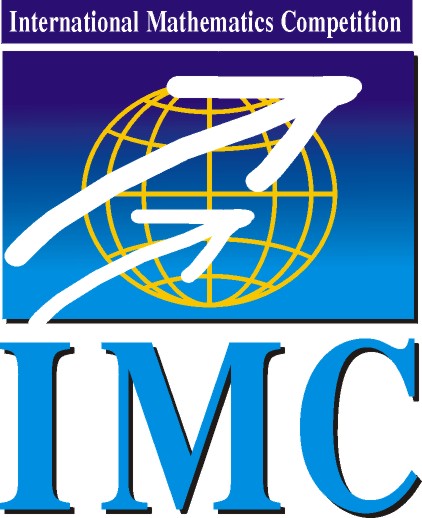
|
International Mathematics Competition
|
IMC 2026 |
| Information | Schedule | Problems & Solutions | Results | Contact |
IMC2021: Problems on Day 2
Problem 5. Let \(\displaystyle A\) be a real \(\displaystyle n\times n\) matrix and suppose that for every positive integer \(\displaystyle m\) there exists a real symmetric matrix \(\displaystyle B\) such that
\(\displaystyle 2021B=A^m+B^2.\)
Prove that \(\displaystyle |\det{A}|\le 1\).
Rafael Filipe dos Santos, Instituto Militar de Engenharia, Rio de Janeiro
Problem 6. For a prime number \(\displaystyle p\), let \(\displaystyle \mathrm{GL}_2(\ZZ/p\ZZ)\) be the group of invertible \(\displaystyle 2 \times 2\) matrices of residues modulo \(\displaystyle p\), and let \(\displaystyle S_p\) be the symmetric group (the group of all permutations) on \(\displaystyle p\) elements. Show that there is no injective group homomorphism \(\displaystyle \varphi : \mathrm{GL}_2(\ZZ/p\ZZ) \to S_p\).
Thiago Landim, Sorbonne University, Paris
Problem 7. Let \(\displaystyle D \subseteq \mathbb{C}\) be an open set containing the closed unit disk \(\displaystyle \{z\ :\ |z|\le 1\}\). Let \(\displaystyle f:D \to \mathbb{C}\) be a holomorphic function, and let \(\displaystyle p(z)\) be a monic polynomial. Prove that
\(\displaystyle \big|f(0)\big| \le \max_{|z|=1} \big|f(z)p(z)\big|. \)
Lars Hörmander
Problem 8. Let \(\displaystyle n\) be a positive integer. At most how many distinct unit vectors can be selected in \(\displaystyle \RR^n\) such that from any three of them, at least two are orthogonal?
Alexander Polyanskii, Moscow Institute of Physics and Technology;
based on results of Paul Erdős and Moshe Rosenfeld
© IMC